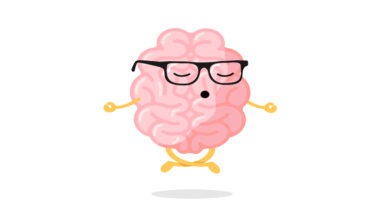8 Foods That Affect Your Sleep

We think we pretty much have the basics down for foods we should and shouldn’t eat right before bed. If we want to sleep well, that is. Coffee? Bad idea. Warm milk? Nice and relaxing. At least, this is what we’ve all been taught from childhood by our Mothers Dearest. But it turns out Mother might not always know best; there are a ton of other foods you can add and take away from your diet to get yourself a good night’s rest. Combine this with the yoga poses for insomnia and you have a better chance of being out like a light.
1. Good: Almonds
If you are trying to kick the dairy habit but want to get that magnesium lull of warm milk, almonds contain hefty doses of magnesium, tryptophan and melatonin. This makes it a perfect combination of ideal sleep-promoting aids. Try eating a handful an hour or so before bed.
2. Bad: Grapefruit
Ever had bad heartburn while you’re lying there in bed? Kiss the grapefruit goodbye; grapefruit increases your stomach’s acidity. If you’d like to avoid heartburn, keep away from grapefruits, oranges, lemons, or any acidic fruits and vegetables (including juices).
3. Good: Oatmeal
It’s normally thought of as a breakfast food, but the benefits of eating oatmeal before bed might change your mind. Oatmeal is full of plenty of sleep-promoting nutrients, like magnesium, potassium calcium and phosphorous. If you want to switch it up and make it a dessert, you can make a porridge, or serve your family some breakfast cookies.
4. Bad: Celery
While normally celery is a perfectly healthy selection, you shouldn’t munch on it right before bed. Celery has natural diuretic properties, which can be a pain when you’re getting up and out of bed every hour to use the restroom. Better to save it as an afternoon snack, instead. Throw ginger and parsley into this category, as well.
5. Good: Raspberries & Tart Cherries
You know melatonin is a great sleep aid, but did you know tart berries like raspberries and cherries are good superfood sources? It’s true! Go ahead and snack away on these fruits an hour before bed.
6. Bad: Greasy & Fried Foods
Surprise, surprise: people who eat fatty, greasy and fried foods in the evening tend to get less productive sleep than those who don’t. Your stomach is working extra hard to digest the stuff, and can lead to indigestion and heart burn. It’s fine to indulge in calorie-rich foods every once in a while, but try to do so at least 3 hours before you go to sleep to make sure it doesn’t cause issue for you later.
7. Good: Bananas
Say hello to plenty of potassium and magnesium! Bananas are an excellent late night snack and natural muscle relaxer. It also contains tryptophan, the same amino acid that gives turkey its famous sleep-inducing reputation.
8. Bad: Spicy Foods
Not only will you be possibly gassy in bed, but spicy foods take a toll on your gut. They also may impact your sleep. It’s best to avoid spicy meals right before hitting the sack.
Subjects Able to Intentionally Heal in Lucid Dream, Study Finds

The findings of a groundbreaking new study on lucid dreaming are in and suggest that those trained in the practice not only see a dramatic improvement in their PTSD symptoms but may also experience change on a biological level.
Research into lucid dreams, in which one wakes up inside a dream, has produced a fascinating insight into the neurological features of this state. Most of the investigation thus far has been focused on mapping brain activity, which has shown the unique characteristics of the brain function of lucid dreamers.
Previously we reported on the preliminary findings of a study out of the Institute of Noetic Sciences, or IONS, the first of its kind to look at the potential for healing within a lucid dream, both on a psychological and physiological level.
Dr. Garret Yount is a molecular neurobiologist who led the study and updated us on the final findings of this extraordinary investigation.
“So in this study, we partnered with an awesome lucid dreaming teacher, Charlie Morley, and we had heard from him that his workshops with veterans with PTSD were really helpful in terms of reducing the symptoms of PTSD,” Yount said. “So, we partnered with him to basically bring a scientific lens to that, and the idea was to recruit folks with chronic PTSD, we included both veterans and non-veterans. They attended a one-week workshop from their home, and Charlie taught them how to achieve lucidity with the goal of transforming their trauma during the dreams. Then we, the research team, just tried to collect data along the way without interfering too much with the process.”





































